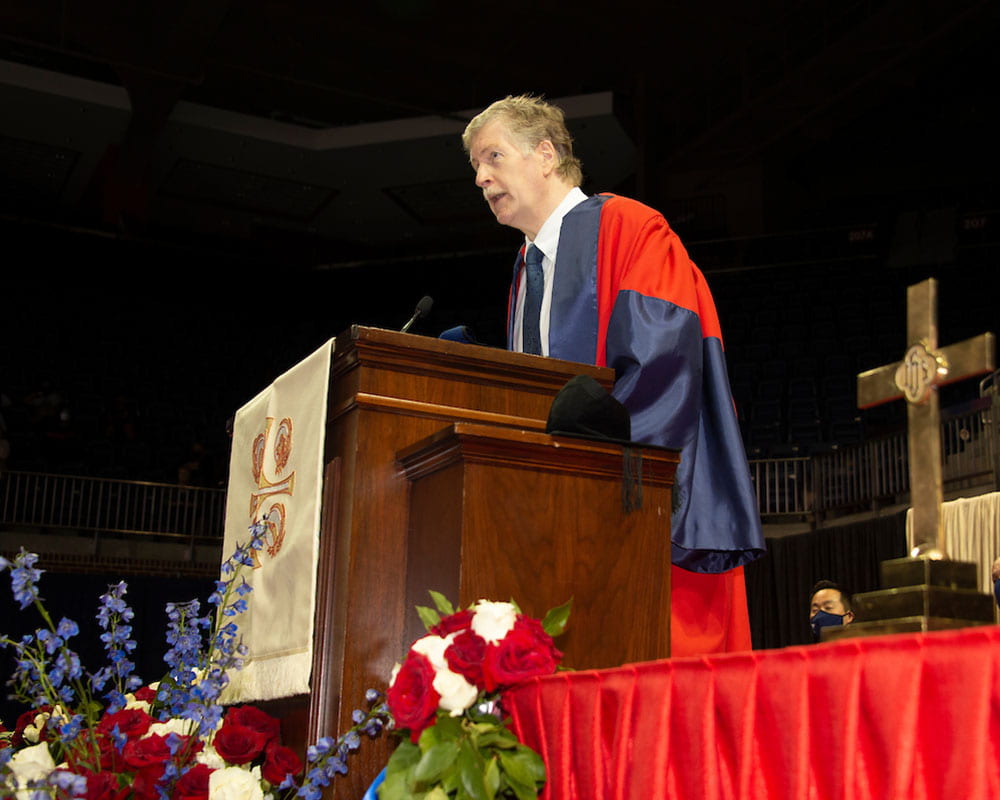Commencement season is upon us. Here at SMU, and across the country, family and friends will celebrate the accomplishments of graduates, while graduates anticipate opportunities for future achievement.
However, the Perkins ceremony is different in one essential respect: it is a worship service. In it, we also celebrate God’s calling and pray for God’s continuing work in the life of each graduate. Their future ministry is their life’s work, to be sure, but work prompted, encouraged, and enabled by God.
I wrote last month about paradoxes of Christian faith. Another is the tension between God’s initiative and our own. Where does the one leave off and the other begin? Are we mere puppets, or, on the other hand, do we act entirely alone?
In his letter to the Philippians, Paul makes striking use of words built on the Greek root εργ, “work” (as in the English energy), most notably in the following two verses:
“I am confident of this, that the one who began a good work among you will bring it to completion by the day of Jesus Christ” (Philippians 1:3-6).
“[W]ork out your own salvation with fear and trembling; for it is God who is at work in you, enabling you both to will and to work for God’s good pleasure” (Philippians 2:12b-13).
John Wesley’s conception of “prevenient grace” likewise includes both the belief that God is the first actor, at work in us before we realize it, and that we ourselves are responsible actors. At one level, this is an expression of the mystery of free will. At another, it is an expression of the mystery of God’s active presence in human life. Wesley would hold the two together, but many of his opponents would not, collapsing one side or the other of this paradox. What the latter gains is simplicity and clarity. What it loses is correspondence to the lived experience of believers who sense both that God is at work in them and also that they are at work for God.
Day-to-day awareness of this partnership is vital. Ministry at times takes us to the limits of our abilities and to the farthest edge of our resolve. It matters that this is not simply our work. It matters that God, not we ourselves, “will bring it to completion.” These realizations are simultaneously humbling and empowering. It is not about us, but neither are we alone. We have the privilege of making a unique and meaningful contribution to a work very much larger than ourselves. And we do this in partnership not only with God, but with countless others before, alongside, and after us.
God’s work in us neither commences nor concludes at commencement. Still, at that moment much indeed is brought to completion, which is both a marker and a signal as well as a cause for celebration.
Paul wrote his letter to the entire church at Philippi. These points are true for us all, lay as well as clergy. Similarly, Wesley said without any such distinction, “Best of all, God is with us.”
God is with us, indeed. Thanks be to God.
